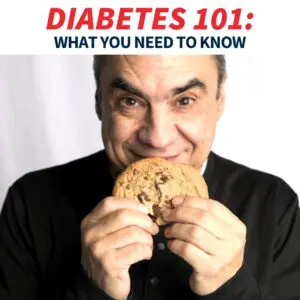Make Your Doctor Proud: Ways to Prevent Heart Disease & Hypertension
 Nothing makes a doctor happier than a patient who takes control of his or her health in order to help prevent major illness or disease. While making lifestyle changes may not be a failsafe against all diseases and conditions, they can help lower several risk factors and ultimately lead to a healthier, potentially longer life.
Nothing makes a doctor happier than a patient who takes control of his or her health in order to help prevent major illness or disease. While making lifestyle changes may not be a failsafe against all diseases and conditions, they can help lower several risk factors and ultimately lead to a healthier, potentially longer life.
According to the American Heart Association, heart disease is the number one cause of death in the United States. Hypertension, which can lead to heart disease among other health conditions, can easily be influenced by your lifestyle decisions, so preventing these conditions can be as simple as making the following changes:
- Stop Smoking. Breaking the habit can be difficult, but if you end up suffering a heart attack or stroke, the recovery will be even worse, not to mention having the difficulty of potentially dealing with chronic heart disease. If you’ve tried quitting before and struggled, or are ready to quit, the AHA offers great resources, tips and tools to help you along the way.
- Eat a Healthy Diet. In the age of quick and convenient, it can be difficult to ensure you are getting a good, heart-healthy diet, but the food we consume plays such a vital role in our health that it’s important to pay attention to what we are taking in. Our bodies need nutrient-rich foods with vitamins, minerals and fiber with lower calories to function properly, such as vegetables, fruits, whole grains, low-fat dairy products, poultry, fish, and nuts. Eating better also helps maintain a healthy body
- Lower Your Cholesterol. High cholesterol leads to fat clogging the arteries, which can lead to a heart attack or stroke down the road. Of course, there are some different types of cholesterol, not all of which are bad. Low-density-lipoprotein cholesterol, more commonly referred to as “LDL,” is considered bad cholesterol. High-density-lipoprotein cholesterol, or “HDL,” is good cholesterol. Finally, there is triglyceride, which is the most common type of fat in the body that, when combined with low HDL or high LDL, can increase your risks. In order to help this balance, reduce consumption of saturated fat and trans fat and be sure to do regular physical activity.
- Lower Blood Pressure. The ideal blood pressure reading is less than 120/80 mmHg. If you are getting close, or are consistently over this number, work with your doctor and take any medications that may be prescribed. You will also want to lower your salt intake, so pay close attention to the sodium content of anything you put into your body and do not add any additional salt from the shaker. Again – fit physical activity into your routine!
- Physical Activity/Maintain Healthy Weight. Have we already mentioned that physical activity is important? Simply doing 3 to 4 forty minute sessions per week of moderate-to-vigorous-intensity activity can help you lower blood pressure, lower cholesterol, and lose or maintain a healthy weight. Of course, if this sounds like too much, or you’re just beginning, just doing a little physical activity is better than absolutely nothing. The AHA states that even moderate activity at 10 minutes at a time may be enough to prevent early death. Plus, exercise can help with many other health-related issues, ranging from sleep to your mood.
- Manage Diabetes. If you have diabetes, be sure to manage it based on direction from your physician. If diabetes goes without proper management, you are putting yourself at higher risk of developing heart disease, especially if any of the other risk factors on this list are in play.
- Reduce Stress. Yes, this one can be tough. There seems to be stress from almost all angles these days at work and at home. It can make you feel terrible and as if you have no control, which of course, leads you to feel even more stress. Unfortunately, avoiding stress completely is almost impossible, but managing it can truly help your health. Maintaining a positive attitude, refraining from smoking and drinking too much coffee, eating a healthy diet and – you guessed it – exercising are all great ways to help manage stress. Also, try to figure out what is causing you stress and make conscious decisions to change the behavior or avoid the activity. However, if you believe your stress is caused by anxiety, speak with a doctor right away for evaluation and to start a treatment plan if needed.
- Limit Alcohol. Too much alcohol is dangerous in both the short term with impairment risks, as well as the long term, leading to all sorts of health conditions, many that harm the heart, such as cardiomyopathy and high blood pressure. This is not to say you cannot enjoy an occasional drink, as moderate consumption (2 drinks or less per day for men; 1 drink or less per day for women) may provide a cardioprotective effect.
While not all risk factors can be changed to completely prevent heart disease and hypertension, being sure to make the necessary lifestyle changes can greatly lower your risk or the severity of your condition. These changes will also help your overall wellbeing, so start taking control and begin the process towards a healthier future for you and your family.




